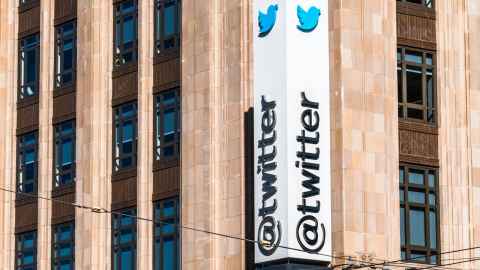Twitter chaos is part of Elon Musk’s master plan
11 November 2022
Opinion: Distraction and confusion are some of the great political and social weapons of our time. Dr Ethan Plaut argues Elon Musk's methodical mismanagement of Twitter is by design.

It's no accident that Elon Musk's takeover of Twitter is a baffling disaster. Confusion is part of his game plan.
On the surface, this is presented as some kind of innovation, that Musk is trying to fix everything that was wrong with Twitter. And to be fair, a lot was wrong with Twitter before Musk got in the driver's seat. It has long been riddled with misinformation, scams, misogyny, racism, antisemitism, and hate speech of every other imaginable kind.
But Twitter has also been an important platform for hundreds of millions of people to share their opinions and artwork and jokes and hot takes and everything else that fits in 280 characters. So it's important that we understand how it's changing.
It's very hard to see exactly where Twitter is going. In part, there's a genuine lack of direction, which would, on its own, raise questions about how much we want the infrastructures of our digital public sphere to be the playthings of mercurial billionaires. But rapid-fire news stories over the past week about Musk firing half of Twitter's staff and generally implementing a smorgasbord of haphazard and radical changes aren't just symptoms of a lack of direction. They also form a familiar pattern of misdirection.
Musk's style of management is a lot like Trump's style of governance. They unleash controversies of every shape and size - sometimes at the scale of 280 characters or less, between other, bigger controversies.
Big tech's 'move fast and break things' philosophy has broken a lot of things. But whatever egregious mistakes might be made along the way, I continue to believe most folks working in tech are trying, in good faith, to push things 'forward'. Exactly which way is forward, that's harder to know.
Technologists often have an unwarranted faith that the development of technology is somehow headed in a more-or-less 'natural' direction of progress, and that people will be better off the more we are pulled along. But the implosion of Twitter this past week ain't that. It is a degenerate form of 'move fast and break things', which, rather than being aimed at innovation of any meaningful kind, seems to function more as a 'shock and awe' PR strategy. Move so fast, breaking so many things, that neither the press nor the public can figure out which way is up or where to fight.
Musk's methodical mismanagement of Twitter, like Trump's virtuosic failure to govern, is successful at some things, especially the prevention of meaningful discussion.
Musk's style of management is a lot like Trump's style of governance. They unleash controversies of every shape and size - sometimes at the scale of 280 characters or less, between other, bigger controversies - with such speed and severity that resistance becomes exhausting and inefficient. I cannot recommend any but the most committed denizens of Twitter spend too much time asking themselves this litany of questions from the popular press over the past week:
Should we be worried about Musk's promises to let banned users return under a radical free speech policy? Or is it more important to attend to moves toward a 'pay to play' platform where users who want their posts to actually be seen by anybody else have to cough up $7.99 per month? Should we be worried about Twitter firing whole teams of people who were trying to stop misinformation and hate speech?
Will they really get rid of Twitter's defining feature, its character limits? Wouldn’t that make Twitter just another blogging site? What are we to make of Musk's recent statements in support of Russia and threats to pull internet service in Ukraine? How is that even related to this? (Unclear, like everything else).
What about the proposal that we should pay a few extra dollars to send private messages to famous people on Twitter? Don't worry about the hate speech, we can all be pen pals with Beyoncé! Wait what were we talking about?
Distraction and confusion are some of the great political and social weapons of our time. Musk's methodical mismanagement of Twitter, like Trump's virtuosic failure to govern, is successful at some things, especially the prevention of meaningful discussion. Broadly, this falls in a category of problems including misinformation and conspiracy theories, which are all designed precisely to make rational thought and discussion difficult or impossible.
Apologies if my jesting seems ill-suited to problems of this gravity. Probably I should not joke about this. But laughing into the void has been one of Twitter's saving graces. People could at least come together, warm their hands by the latest social media dumpster fire, and bond over some shared understanding of what was going wrong. That falls somewhat short of the democratic ideal of reaching consensus on how we might make things right, but I'd miss it.
Dr Ethan Plaut is a lecturer in the School of Cultures, Languages and Linguistics at the University of Auckland, with expertise in communication avoidance, technology ethics and journalism.
This article reflects the opinion of the author and not necessarily the views of Waipapa Taumata Rau University of Auckland.
This article has been published with permission of Newsroom, Twitter chaos is part of Elon Musk's master plan, 8 November, 2022
Media contact
Margo White | Media adviser
M: 021 926 408
E: margo.white@auckland.ac.nz